Home Education In Your State
Homeschool Information For Your State
Home Education or Homeschool is a part of every state’s regulations in elementary and secondary education. Those regulations range from very little in requirements to significant in some states.
It is our goal to provide general information as is known commonly for home education. In the information provided will usually be a link to the state’s Department for Education. Other links are provided for practical ways to meet those requirements.
The Homeschool Legal Defense Association is a standard for this information and is used often. Parents can become members of this group which works on behalf of homeschool in the United States.

Select Your State for Information About Homeschoool
See what Your State Lists
Review Your Homeschool Summary and Steps to Take
Check School Choice Options and Any Funding
Need more legal information see HSLDA
Getting Everything Together for A Successful Homeschool
As you review the information provided for your state, please keep in mind that it reflects the most current legislative actions available at the time of publication. Changes may occur when your state legislature reconvenes, either in regular or special sessions. Our goal is to keep this information as up-to-date as possible.
Each state page includes a link to the Home School Legal Defense Association (HSLDA), where you can find additional details and updates.
The homeschool summaries, along with information on school choice and financial options for homeschooling families, are all based on current state laws. These laws are subject to change as new legislation is introduced and enacted.

K-12 Accredited Programs for Homeschool Families
At NFC Academy, we offer accredited K–12 online programs grounded in a strong biblical worldview, designed to support both academic excellence and family flexibility.
-
Lower Elementary (K–2): Families can choose between our engaging online program or the two book-based program with offline practice activities. Both options allow parents to guide daily learning as the Learning Coach.
-
Upper Elementary (Grades 3–5): Offered fully online with either a Parent-Directed or NFC Academy Teacher-Directed option. Students build foundational skills in a structured, interactive environment.
-
Middle School (Grades 6–8): A fully online program that develops critical thinking and academic readiness for high school. Parents or NFC Academy teachers may direct instruction.
-
High School (Grades 9–12): Our college-prep online program includes Honors, AP courses, and a required Bible course each year. Still parent directed instruction available or NFC Academy teachers. For advanced courses not written from a biblical worldview, we provide added integration and support.
NFC Academy is committed to partnering with families to provide a complete Christian education from Kindergarten through 12th grade.
Your Choice of Programs
K-12 Online Programs
K-2 Book Program Options

Accredited & NCAA Approved
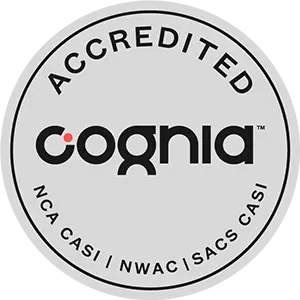
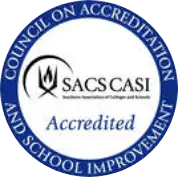
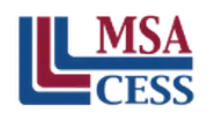
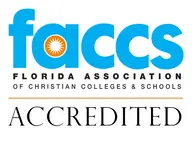
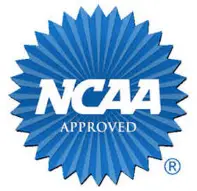
LEARN MORE ABOUT NFC ACADEMY PROGRAMS
More About Online & Book Programs

K-2 Lower Elementary
Let us partner with you to give your child a great foundation at home starting in Pre-K through 4th grade accredited book program.

Grades 3-5 Upper Elementary
Our accredited online programs are a great option for your student starting in 3rd grade. Home teacher or NFC Academy teachers.

Middle School Online Grades 6-8
Our online program options continue to be available into Middle School in our 6th – 8th grade program. Home Teacher or Academy teachers.

High School Online Grades 9-12
Graduate from our accredited program college prep program in the online high school at NFC Academy! Courses approved by the NCAA.
FAQs
How do homeschool regulations vary between states?
Homeschool regulations in the United States exhibit significant variation across states, influencing how families approach education at home. Eleven states, including Idaho, Alaska, and Texas, impose minimal to no regulations, allowing parents considerable freedom to educate their children without formal notification or oversight. In these states, parents are often only encouraged to keep records of their children’s progress but are not mandated to report them to any governmental body.
Conversely, states like New York, Pennsylvania, and Massachusetts maintain stringent regulations. These states require parents to file a notice of intent to homeschool, submit quarterly progress reports, and adhere to specific curriculum guidelines that include mandatory subjects and standardized testing at various grade levels. For instance, Pennsylvania’s homeschooling laws necessitate a detailed curriculum outline and evaluations by state-approved evaluators.
Many states fall somewhere in between these extremes. For example, Georgia mandates an annual notice of intent and periodic testing every three years, while North Carolina requires homeschools to have an official name and a designated Chief Administrator. Additionally, some states impose specific teaching days; Oklahoma and Indiana require at least 180 days of instruction per year.
The regulatory landscape also reflects broader educational philosophies. States with high regulations often emphasize accountability and standardized learning outcomes, while those with low regulations prioritize parental choice and educational freedom. This dichotomy underscores the diverse approaches to homeschooling nationwide, shaped by local laws and cultural attitudes toward education.
As homeschooling continues to gain popularity—especially post-pandemic—understanding these regulations is crucial for families considering this educational path. With our accredited, flexible K-12 programs, NFC Academy ensures families meet regulatory requirements while maintaining a personalized, Christian-based education, offering the support needed in high- and low-regulation states.
How can I find my state's specific homeschool requirements?
To find your state’s specific homeschool requirements, visit your state’s education department website, which typically outlines the necessary regulations and procedures for homeschooling. Each state has unique laws governing homeschooling; for instance, states like New York and Pennsylvania have stringent requirements, including submitting a Notice of Intent and maintaining detailed educational records. In contrast, states like Texas and Alaska impose minimal regulations, often requiring no formal notification.
You can also access comprehensive resources that compile state-specific homeschooling laws. Organizations like the Home School Legal Defense Association (HSLDA) provide detailed information about mandatory subjects, testing requirements, and record-keeping obligations. These resources are invaluable for understanding the legal framework in your state.
Additionally, consider joining local homeschooling groups or forums where experienced homeschoolers share insights and advice about navigating state laws. These communities can offer practical tips on compliance and support as you embark on your homeschooling journey.
If you’re transitioning from public school to homeschooling, ensure you understand the withdrawal process in your state. This often involves submitting a formal letter to the school district. Be aware that some states require annual assessments or portfolios of student work to demonstrate educational progress.
For families seeking an accredited Christian homeschool program, NFC Academy provides flexible options that meet state requirements while offering the convenience of online and book-based learning. Our accredited K-12 college preparatory programs give a Christian worldview and academic excellence designed to comply with homeschool regulations across various states.
Stay updated on any legislation changes affecting your state’s homeschooling requirements. Regularly checking official state education websites or subscribing to homeschooling newsletters can help you stay informed about updates that might impact your educational approach.
Utilizing these resources ensures that your homeschooling experience is both compliant and enriching for your child.
What is the Homeschool Legal Defense Association?
The Home School Legal Defense Association (HSLDA) is a prominent nonprofit organization based in Purcellville, Virginia, dedicated to advocating for the rights of homeschooling families in the United States. Founded in 1983 by Michael Farris, HSLDA emerged when homeschooling was not widely accepted and often faced legal challenges. The organization has played a crucial role in legalizing homeschooling across various states through litigation and legislative advocacy.
HSLDA provides its members with legal assistance, ensuring that families receive support when confronted with challenges from state or local authorities regarding their homeschooling practices. Thousands of families benefit yearly from consultations and representation, reinforcing their rights to educate their children at home.
In addition to legal support, HSLDA actively engages in legislative efforts at the federal and state levels. The organization monitors proposed laws impacting homeschooling and works to amend or defeat harmful legislation. HSLDA also collaborates with state homeschool organizations to improve legal frameworks for homeschooling, thereby enhancing the educational environment for families. Furthermore, HSLDA is committed to public awareness, frequently engaging with media outlets to present informed perspectives on homeschooling issues.
With over 100,000 member families, HSLDA also offers educational resources through its publications and online platforms, including a bimonthly magazine and an online academy that provides Christian-based courses for homeschoolers. Families seeking accredited Christian homeschool programs, such as those offered by NFC Academy, can benefit from the robust legal support and educational resources provided by HSLDA, making it easier to navigate both the legal and academic aspects of homeschooling. The organization’s mission is to protect homeschooling rights and empower families through resources and community support, making it a cornerstone of the homeschooling movement in America.
Which state has the strictest homeschool laws?
New York is often cited as having some of the most stringent laws; parents must file a notice of intent to homeschool, submit quarterly reports, and conduct annual assessments of their children’s progress. This level of oversight can be daunting for many families, as local school districts closely monitor compliance with these requirements.
Massachusetts also ranks high, requiring detailed approval from school committees or superintendents for homeschooling plans. Parents must submit their curriculum and teaching hours for each subject before the academic year begins, along with periodic evaluations of their child’s progress.
Pennsylvania has similar requirements, necessitating a notarized affidavit for each child and a detailed list of subjects to be taught. Additionally, students must be evaluated by a state-approved evaluator annually. Rhode Island mandates attendance records and requires that these be available for district review at the end of each year, adding another layer of complexity to the homeschooling process.
Vermont is notable for its requirement that parents submit a comprehensive outline of their planned curriculum for approval and conduct annual assessments through certified educators or standardized tests.
Other states with strict regulations include Ohio, where local school districts often impose additional requirements beyond state law, and North Dakota, which mandates that parents have at least a high school diploma or GED to homeschool.
These states exemplify the challenges homeschooling families face due to extensive bureaucratic oversight and regulatory demands. For families seeking an accredited, flexible, and supportive homeschooling option amidst such regulations, we at NFC Academy offers a robust, Christian-based curriculum with year-round enrollment and comprehensive resources for students and parents.
Do I need to re-enroll in NFC Academy if I move to another state?
The requirement to register for homeschooling varies significantly by state in the U.S. Some states. For example, Texas and Alaska have minimal to no registration requirements; parents can simply begin homeschooling without notifying any government agency. Conversely, states such as New York and Pennsylvania have stringent regulations that require parents to file a notice of intent to homeschool, submit detailed educational plans, and provide periodic assessments of their child’s progress.
In states with moderate regulations, such as Florida and Virginia, parents typically need to notify their local school district of their intent to homeschool. This often involves submitting an affidavit or a letter of intent at the beginning of the school year. Additionally, some states may require annual assessments or progress reports to ensure educational standards are being met.
Parents considering homeschooling should research their specific state’s laws thoroughly. Resources like the Home School Legal Defense Association (HSLDA) provide detailed breakdowns of requirements by state, helping families navigate the legal landscape. Many states also have specific compulsory attendance laws that dictate the age range for mandatory education and the minimum number of instructional days required yearly.
Ultimately, while homeschooling is legal in all 50 states, the level of oversight and registration requirements can differ dramatically. Parents should proactively understand their state’s regulations to ensure compliance and facilitate a smooth homeschooling experience.
Accredited programs like NFC Academy can offer valuable support, ensuring families meet their state’s requirements and benefit from a structured quality Christian education. Keeping organized records and maintaining communication with local educational authorities can also be beneficial in managing the homeschooling process effectively.
Will my child's NFC Academy credits be recognized if we move to a state with different homeschool regulations?
Yes, your child’s NFC Academy credits will be recognized even if you move to a state with different homeschool regulations. As an accredited online Christian school, NFC Academy follows strict academic standards that are recognized nationwide.
Our accreditation is granted by respected organizations such as Cognia, the Middle States Association of Colleges and Schools, and the Florida Association of Christian Colleges and Schools (FACCS). These bodies make sure that the credits earned by our students meet national standards. They also assist in making sure their credits can be transferred easily between educational institutions across states.
Homeschool regulations can vary from state to state. However, the important factor is that NFC Academy is accredited. This gives our program credibility so that our students’ academic records are accepted in other states and by other accredited schools.
When families move to a new state, local school districts and other institutions are generally required to accept credits from accredited programs like ours. It is important to note that while your child’s credits will be accepted, you may need to comply with specific homeschool laws or requirements in your new state.
Each state has its own guidelines for homeschooling families. This may include filing paperwork, registering with the local school district, or adhering to different record-keeping practices. We encourage families to familiarize themselves with their new state’s regulations. We are here to assist you in fulfilling these requirements.
Are there any states where NFC Academy's program isn't recognized?
No, NFC Academy’s program is recognized in all 50 states. As an accredited institution, we meet the requirements for homeschooling set forth by state regulations. This assures families across the United States that they can confidently use our program.
Homeschooling laws can vary from state to state. However, since we are an accredited program, our courses are accepted nationwide. This means that whether you’re homeschooling in a state with strict regulations or one with a more flexible approach, NFC Academy’s program will be recognized.
Each state may have specific guidelines that homeschooling families need to follow. This may include submitting an intent to homeschool, participating in annual assessments, or maintaining certain records. However, because of our accreditation and adherence to academic standards, your child’s enrollment in our program will generally meet or exceed these state requirements.
We advise all families to review their state’s specific homeschool regulations to check for compliance. For example, states like New York or Pennsylvania have more involved reporting processes. States like Texas or Idaho are known for their more relaxed regulations.
Since we are a private, Christian-based homeschool academy, a Biblical worldview is integrated into their child’s education without conflict with state policies. If you plan to relocate or if your family is homeschooling in a state with particular regulations, you can rely on NFC Academy’s accreditation and structure. We help make sure that your child’s education continues smoothly.
Are there any state-specific homeschool organizations or support groups I can join?
Yes, each state has its own homeschool organizations and support groups that can be valuable resources for homeschooling families. These groups offer assistance with state-specific regulations. They provide a sense of community and offer events such as field trips, co-ops, and conferences. We encourage families to connect with local homeschooling groups to supplement their academic journey with additional support and resources.
One national organization that is widely recognized is the Home School Legal Defense Association (HSLDA). While this is a nationwide organization, it operates in every state and advocates for homeschool rights. They help families handle legal requirements and homeschooling laws specific to their state. HSLDA is a great place to start, especially if you’re new to homeschooling or moving to a new state.
In addition to national support, most states have their own homeschooling organizations. For example, the Texas Home School Coalition (THSC) supports families in Texas. The Florida Parent-Educators Association (FPEA) serves Florida families. These state-specific organizations often provide detailed information about the requirements of homeschooling in your state. This includes filing paperwork, reporting student progress, or meeting testing requirements.
You can find a list of resources for homeschooling in your state on our website. Our site includes links to other helpful information. Connecting with these groups is beneficial for staying compliant with state laws. It also provides opportunities for social interaction for both parents and students through meetups, educational workshops, and other events.
What resources are available for homeschoolers in my state?
When homeschooling in the United States, each state has its own set of regulations and resources for families. We provide tools and information at NFC Academy to help you handle these requirements. No matter where you live, you can have access to the resources and support needed to create a successful learning environment for your child. We offer detailed, state-specific homeschooling information. This information helps you understand the regulations that apply to you.
States differ in their requirements. Some mandate specific documentation, evaluations, or standardized testing, while others offer more flexibility. We encourage you to review your state’s homeschool laws and stay informed about updates that could affect your homeschool.
In addition to legal guidance, there are national organizations like the Home School Legal Defense Association (HSLDA). This organization advocates for homeschooling rights and offers valuable resources and support. HSLDA can be an excellent resource for families needing guidance on legal matters related to homeschooling.
For families enrolled in our programs, NFC Academy offers extensive online resources. This includes our Daily Lesson Planner to help keep your homeschooling on track. If you are using our book-based program for K-4 or our fully online program for grades 3-12, we also provide extensive tools and support to help you succeed.
NFC Academy teachers are available for students from elementary to high school. Parents who choose to teach at home have access to easily accessible online resources to guide them through the curriculum.
Can I switch to homeschooling mid-year in my state?
Yes, it is possible. The process, however, varies by state due to differing regulations regarding homeschooling. Generally, the first step involves notifying your current school of your intent to withdraw your child. While some states require formal notification, others may have more flexible guidelines. For instance, in Virginia, parents must inform the division superintendent of their intent to homeschool as soon as practical, and they have 30 days to comply with the state’s homeschooling requirements thereafter.
Once you’ve notified the school, you can begin homeschooling immediately; there is typically no need to wait for approval. This is crucial because misconceptions about needing permission can lead to confusion or unnecessary truancy investigations. Retaining proof of your notification—such as certified mail receipts or email confirmations—is advisable to ensure compliance with local laws.
In addition to understanding the legal requirements, it’s essential to consider your child’s emotional and educational needs during this transition. Factors such as learning styles, socialization opportunities, and curriculum choices should be assessed carefully. Many families find that mid-year transitions allow for a more tailored educational experience that addresses specific challenges their children may face in traditional settings.
Furthermore, implementing a “deschooling” period—where formal instruction is paused to allow children to adjust—can be beneficial. This time can help students shed the rigid structures of traditional schooling and embrace a more flexible learning approach.
NFC Academy offers year-round enrollment and flexible start dates, providing families with accredited, Christian-based education options ideal for mid-year transitions. With proper planning and adherence to state laws, transitioning to homeschooling mid-year can be a rewarding experience for parents and children.
